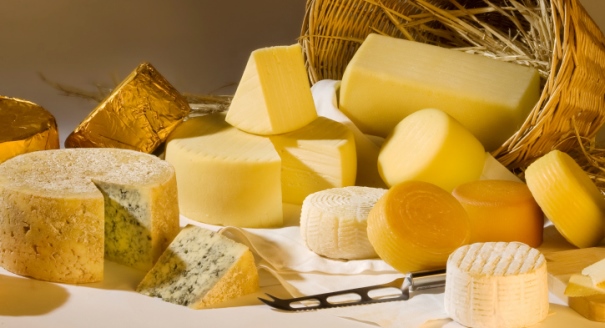Angela Merkel likes cheese. At least that is what the German chancellor told Dalia Grybauskaitė, the president of Lithuania, the country currently chairing the EU Council presidency. During a recent EU summit, Grybauskaitė made a point of presenting Merkel with some Džiugas cheese, one of Lithuania’s finest and most famous.
And so she should. Since early October, Russia has banned the import of Lithuanian dairy products on the grounds that they do not meet Russia’s consumer protection standards. Moscow is now threatening to prohibit Lithuanian meat and fish products too.
Russia has repeatedly resorted to imposing embargoes on individual EU countries for one main reason: to test Europeans’ unity and solidarity. Yet in almost all cases, such bullying tactics by Vladimir Putin, the Russian president, have failed to break that unity. The EU has shown that it can speak with one voice when it wants to.
Some cynics might argue that defending Lithuania against Russia does not cost much. The real test of EU solidarity, critics say, is when it comes to big trade deals with China, energy contracts with Russia, or the new transatlantic trade and investment talks with the United States.
But that argument misses the point. Ever since Putin began using the weapon of trade embargoes against Eastern EU member states that do not toe the Kremlin’s line, the EU has stuck together.
What is surprising is that Putin has not learned from his failed arm-twisting tactics of 2007, when Moscow imposed an embargo on Polish meat products.
That embargo coincided with Germany heading the rotating EU Council presidency. At the same time, the EU was also in the thick of negotiating a new partnership and cooperation agreement with Russia, which the Kremlin and some EU member states wanted.
The most interesting aspect of that dispute is how Putin misjudged Merkel. Merkel defended the Polish government, then led by the nationalist-conservative Law and Justice party. Its leader, Jarosław Kaczyński, was a vocal Euroskeptic. Yet he was determined that Warsaw should use its veto in the EU to block a new accord with Russia. Kaczyński was also often stridently anti-German.
If Putin thought that Kaczyński’s anti-European, anti-German stance would be enough to rupture the EU’s solidarity and force his traditional EU ally, Germany, to break ranks, then he was mistaken. Merkel stood up for the principle of EU unity. A new accord with Russia was postponed. Putin eventually lifted the embargo on Polish meat imports.
Now Putin is attempting to intimidate Lithuania ahead of this month’s Eastern Partnership summit in the capital, Vilnius. At the gathering, the EU hopes to conclude new trade and visa liberalization accords with Armenia, Azerbaijan, Belarus, Georgia, Moldova, and Ukraine.
Again, the EU is standing firm.
Karel de Gucht, the EU’s trade commissioner, pulled no punches last month when he criticized Russia for not providing “clarification on the reasoning of these tightened customs controls,” which could contravene World Trade Organization rules. De Gucht added that Russia’s embargoes and restrictions against EU member states have been on the increase. Indeed, it’s as if the embargoes are one of the last tools the Kremlin can use to try to intimidate EU member states, especially those in Eastern Europe and the Baltics.
However, the more Russia resorts to such tactics, the more the Kremlin reveals just how little it has to offer the countries it threatens.
A recent meeting of the Russian-dominated customs union, which is supposed to develop into a full-fledged Eurasian Union, exposed big tensions. According to the Center for Eastern Studies in Warsaw, the custom union’s two other members, Kazakhstan and Belarus, criticized Russia’s heavy-handedness. Moscow gave Astana and Minsk little say over how the union should be organized or how they might benefit from it.
Despite such criticism, Russia has stepped up embargoes against Ukraine and threats against Moldova and Ukraine if they sign a partnership agreement with the EU in Vilnius instead of opting for membership of the customs union.
The embargoes reveal desperation on the part of Moscow. Several EU and Eastern Partnership countries are dependent on Russia for their energy resources but also for trade. That gives Russia political leverage.
Yet the more Russia piles on the pressure, the more that pressure could be counterproductive. Reformers and pro-Western managers across the region see a clear need to diversify their energy and trade in order to break out of the Russian stranglehold of intimidation and corruption. For that, they need political and economic support from the EU. But they also have to take matters into their own hands by organizing pro-European campaigns, regardless of the difficulties that entails.
The Lithuanians, no strangers to bullying by Moscow, have the EU to fall back on. As for Džiugas cheese, it’s a hit in Moscow. At Russia’s ProdExpo international food exhibition earlier this year, Džiugas won the gold medal in the twenty-four-month-matured hard cheese category. So much for Russia’s sanitary concerns.


.jpg)
.jpg)


